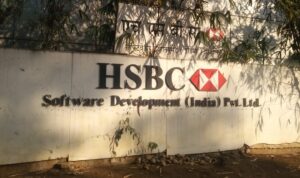Starting an NGO in India begins with a crucial decision: should it be registered as a Section 8 company under the Companies Act or as a Public Charitable Trust under the Indian Trusts Act and relevant state laws? The answer impacts your credibility with donors, eligibility for grants and FCRA, governance, ongoing compliance, and operational flexibility. This guide breaks down the differences in plain English so founders, boards, and finance leads can choose confidently.
Quick Snapshot: Section 8 Company vs Trust
- Section 8 Company: Ideal for NGOs needing strong governance, corporate donors, institutional grants, and structured reporting.
- Public Charitable Trust: Suitable for founders seeking simpler formation, fewer board formalities, and local community initiatives.
What is a Section 8 Company?
A Section 8 company is a not-for-profit entity registered under the Companies Act (2013). It exists for charitable objectives such as education, relief of the poor, environment, research, sports, and similar causes. Surplus cannot be distributed as dividends and must be reinvested toward the objectives.
Key characteristics
- Legal status: Separate legal entity, limited liability, perpetual succession
- Governance: Board of Directors, documented policies, statutory meetings, minutes
- Funding: Favored by CSR donors and institutional funders due to strong compliance trail
- Perception: High credibility for audits, grants, and cross-border collaborations
What is a Public Charitable Trust?
A Public Charitable Trust is typically created through a Trust Deed and registered with the relevant state authority. The trustees manage assets and programs for public benefit, guided by the objects stated in the deed.
Key characteristics
- Legal status: Recognized entity upon registration, governed by trust laws and deed
- Governance: Managed by trustees as per deed; board processes can be simpler
- Funding: Well-accepted for donations; institutional donors may request additional documentation
- Perception: Credible locally; governance can vary widely based on deed quality
Registration Requirements: What It Takes to Get Started
Section 8 Company registration
- Name approval and drafting of MoA (Memorandum of Association) and AoA (Articles of Association)
- Filing incorporation forms with Registrar of Companies (RoC)
- Obtaining PAN, TAN, and bank account post-incorporation
Trust registration
- Draft Trust Deed with clear objectives, governance rules, and dissolution/resource handling
- Execution on stamp paper and registration with the sub-registrar
- Obtain PAN and open bank account
12A and 80G: Tax Exemptions That Matter
Whether you pick a Section 8 company or a trust, apply for 12A (income-tax exemption for the NGO) and 80G (donor tax deduction). These approvals boost donor confidence and reduce taxes.
- 12A: Exempts your NGO’s qualifying income from tax
- 80G: Allows donors to claim deductions for eligible donations
- Renewals: Ensure timely revalidation as per current CBDT rules to avoid lapses
FCRA: Foreign Funding and Compliance
If you expect foreign contributions, plan for FCRA registration or prior permission. Both Section 8 companies and trusts are eligible, but Section 8 entities may find it easier to meet governance and reporting expectations of international funders.
- Open a dedicated FCRA bank account as required
- Maintain meticulous records of foreign receipts and utilization
- File annual FC returns within timelines
Governance & Reporting: Which Has More Structure?
Section 8 Company
- Board meetings with formal minutes
- Annual filings with RoC (financials, returns)
- Clear roles for directors, defined quorum, conflict-of-interest policies
Trust
- Governed by the Trust Deed and relevant state trust laws
- Trustee meetings and records as per deed
- Compliance cadence can be lighter but depends on deed provisions and state rules
Cost, Timelines, and Practical Considerations
- Formation speed: Trusts can be quicker to set up; Section 8 takes longer due to company law processes
- Costs: Section 8 generally costs more to incorporate and maintain
- Donor optics: Section 8 often preferred for CSR and international grants; trusts remain common and respected in community philanthropy
When to Prefer Section 8 vs Trust
Choose Section 8 if you:
- Plan to pursue CSR funding and institutional grants
- Need strong governance, clear roles, and robust reporting
- Expect cross-border partnerships and FCRA in the medium term
Choose Trust if you:
- Need faster, lower-cost setup for community initiatives
- Prefer simpler internal governance with trusted founders
- Operate locally with moderate donation volumes
Board Composition, Membership, and Control
- Section 8: Directors with fiduciary duties; structured induction; rotation rules can apply
- Trust: Trustees as per deed; flexibility in appointing and removing trustees depends on deed language
Asset Lock and Dissolution
- Surplus cannot be distributed in either structure
- Upon dissolution, assets must be transferred to another registered charity with similar objectives
- Draft dissolution clauses carefully in the MoA/AoA (Section 8) or Trust Deed (Trust)
Financial Controls and Audits
- Annual audit is expected for both structures based on thresholds and donor requirements
- Maintain donor-wise and purpose-wise ledgers, grant utilization reports, and UC certificates
- For FCRA entities, keep separate books for foreign and domestic funds
Documentation Checklist
For Section 8 company
- Proposed name, objects, director KYC
- MoA, AoA, declarations, RoC forms
- PAN, TAN, bank account, 12A/80G applications
For Trust
- Trust Deed with objects and governance rules
- Trustee KYC and registration with sub-registrar
- PAN, bank account, 12A/80G applications
Common Mistakes to Avoid
- Vague or restrictive objects that limit programs or funding later
- Skipping 12A and 80G applications, which hurts donor confidence
- Poor record-keeping for restricted grants and FCRA funds
- Unclear dissolution clauses and asset transfer provisions
Decision Matrix: A Practical Way to Choose
Score each factor (1 to 5) based on importance to your NGO and compare totals:
- Donor preference for structure (CSR/international)
- Governance expectations and board maturity
- Speed and cost of formation
- FCRA plans in 12 to 24 months
- Reporting and audit discipline
Conclusion
Both Section 8 companies and Public Charitable Trusts can deliver real impact. If your NGO seeks institutional grants, international partnerships, and strong governance optics, a Section 8 company is often the better fit. If you need a faster, cost-effective start with simpler board processes, a Public Charitable Trust may be ideal. Align the structure with your funding roadmap, governance capacity, and compliance appetite.
Next step: Get a no-obligation clarity call to map your objectives against registration, 12A/80G, and potential FCRA needs. Our team will outline timelines, documents, and a compliance calendar tailored to your mission.
FAQ
Is a Section 8 company better than a trust for CSR funding?
CSR and institutional donors often prefer Section 8 companies due to familiar corporate governance and strong compliance, though trusts can also qualify with proper documentation.
Can a trust register for 12A and 80G?
Yes. Both Section 8 companies and trusts can obtain 12A (income exemption) and 80G (donor deduction) approvals subject to conditions and timely revalidation.
Which structure is faster to register?
Trusts are typically faster due to simpler deed-based registration. Section 8 companies involve company law processes and take longer.
Do both structures need audits?
Yes. Annual audits and donor reporting are expected in practice and often mandated by law or grant agreements, regardless of structure.
What about FCRA for foreign donations?
Both can apply for FCRA registration or prior permission. Maintain strict bank segregation, utilization records, and timely FC returns.
Ready to choose your NGO structure with confidence? Book a free, 20-minute discovery call. Get a step-by-step roadmap for registration, 12A/80G, and FCRA planning aligned to your goals.



